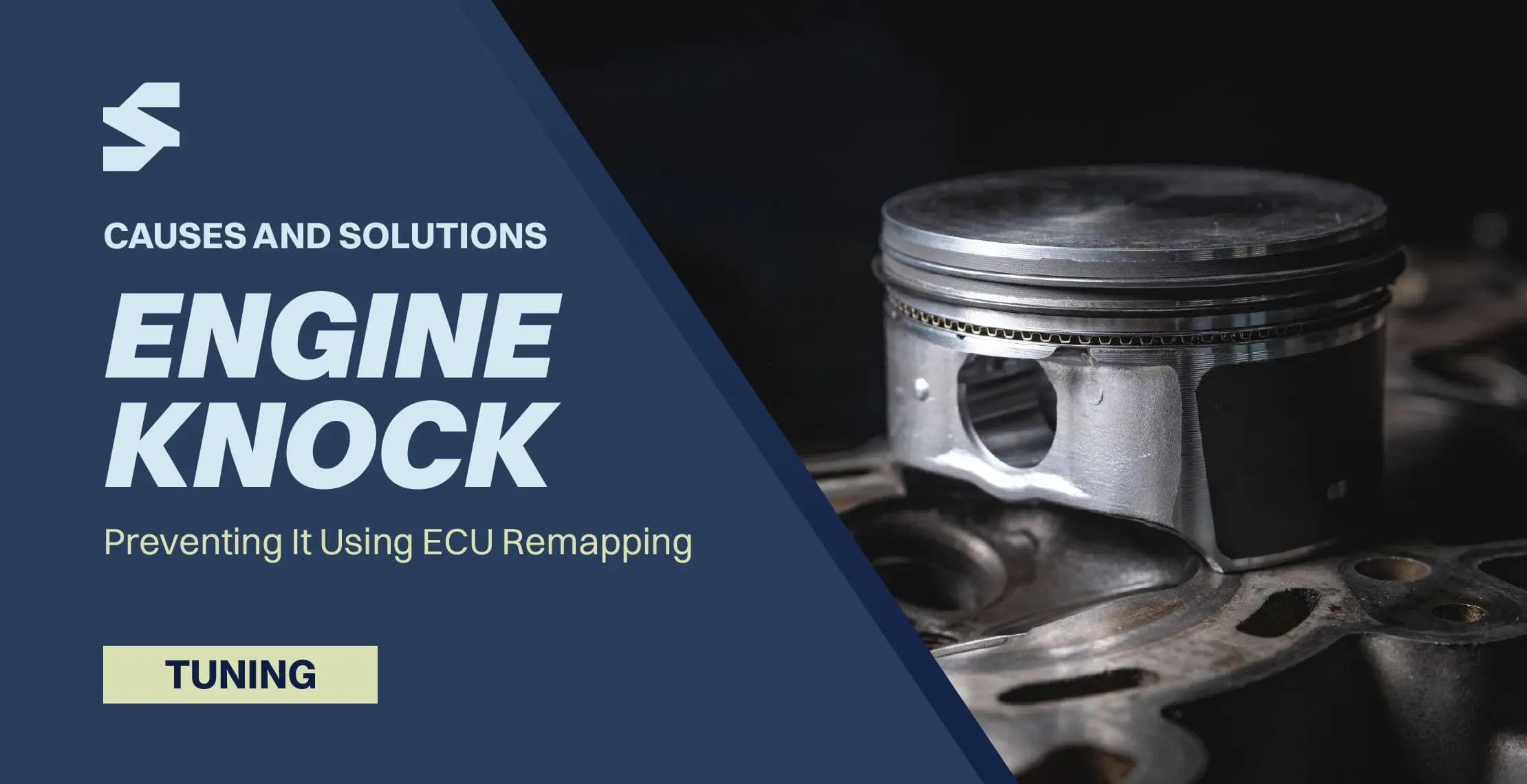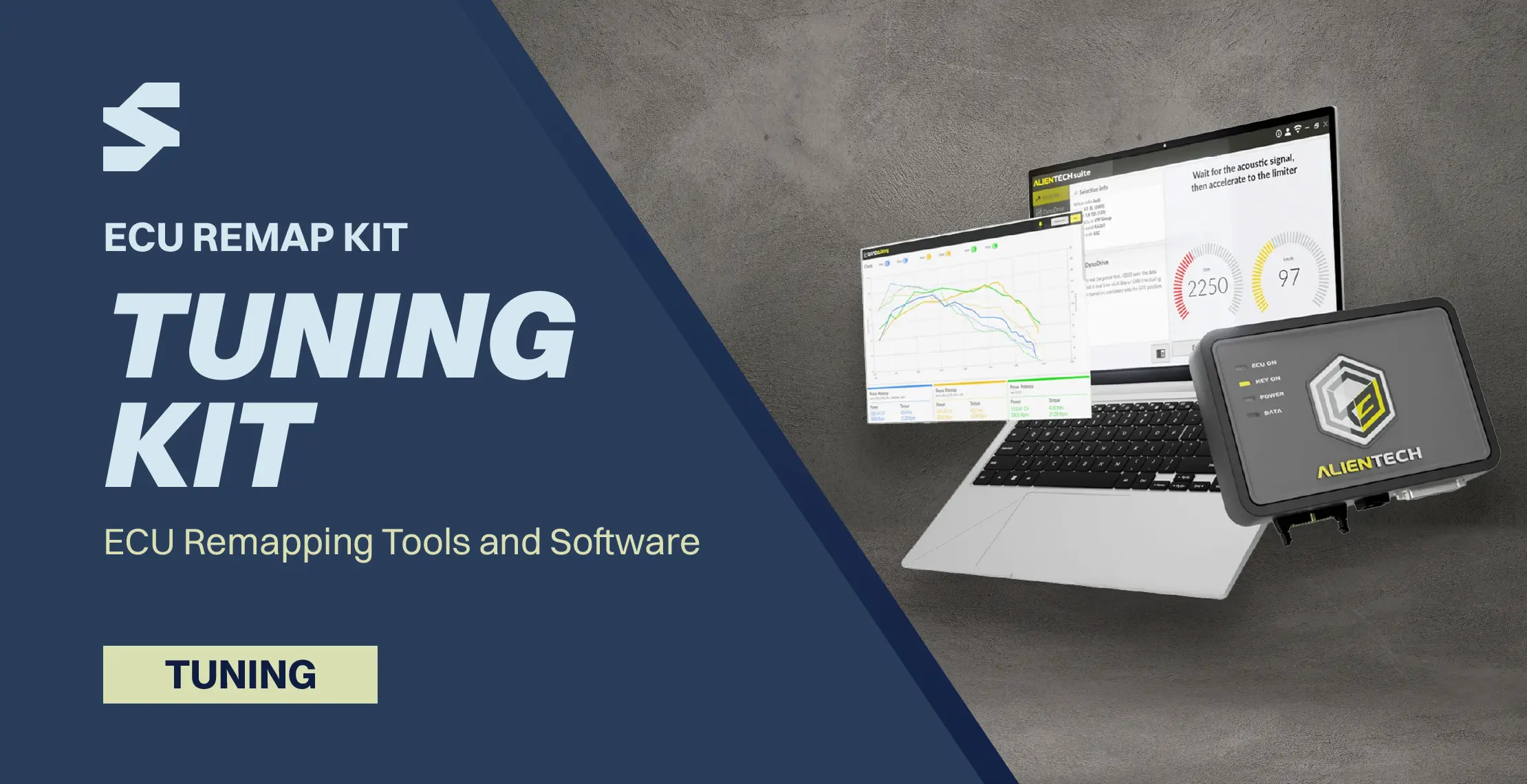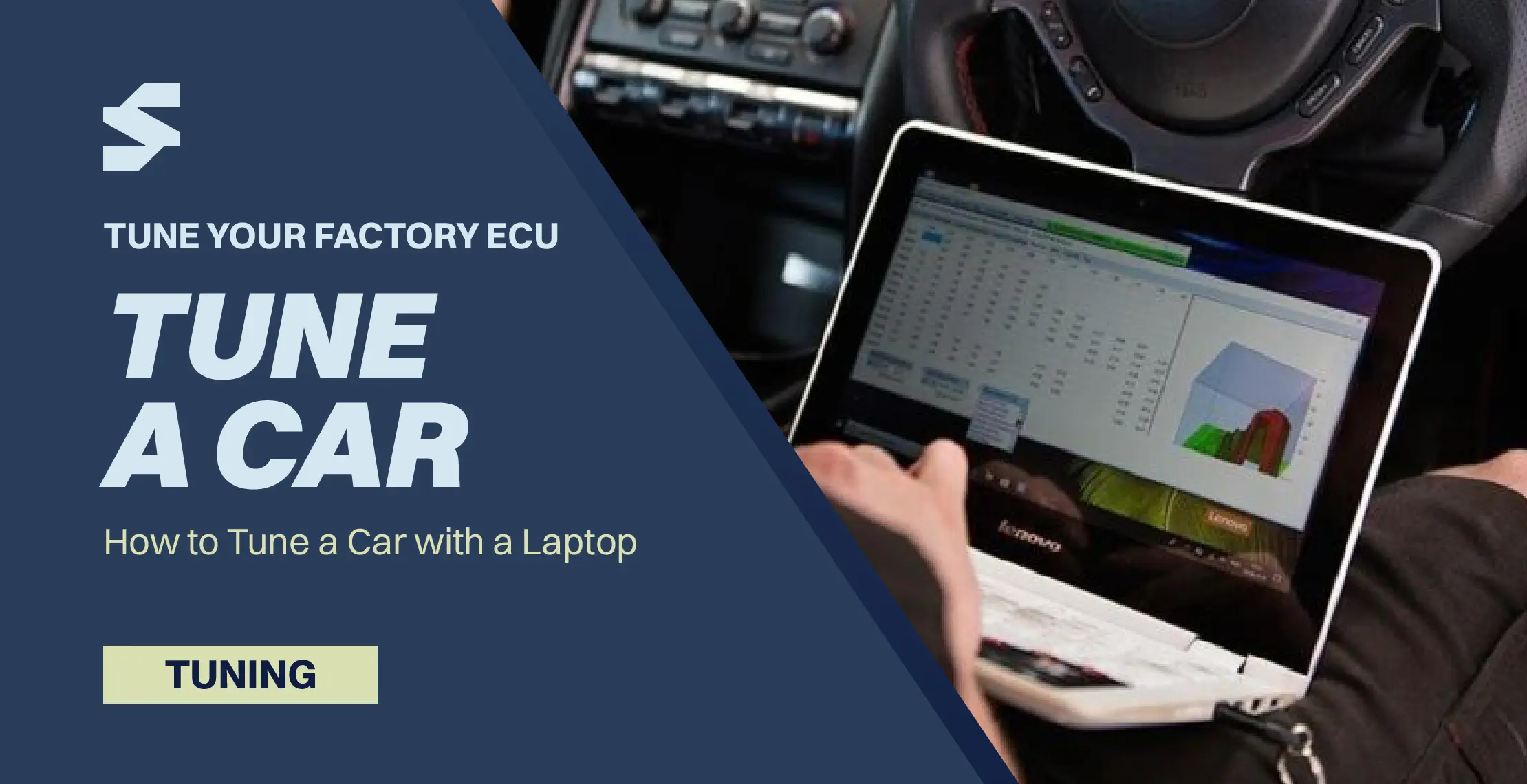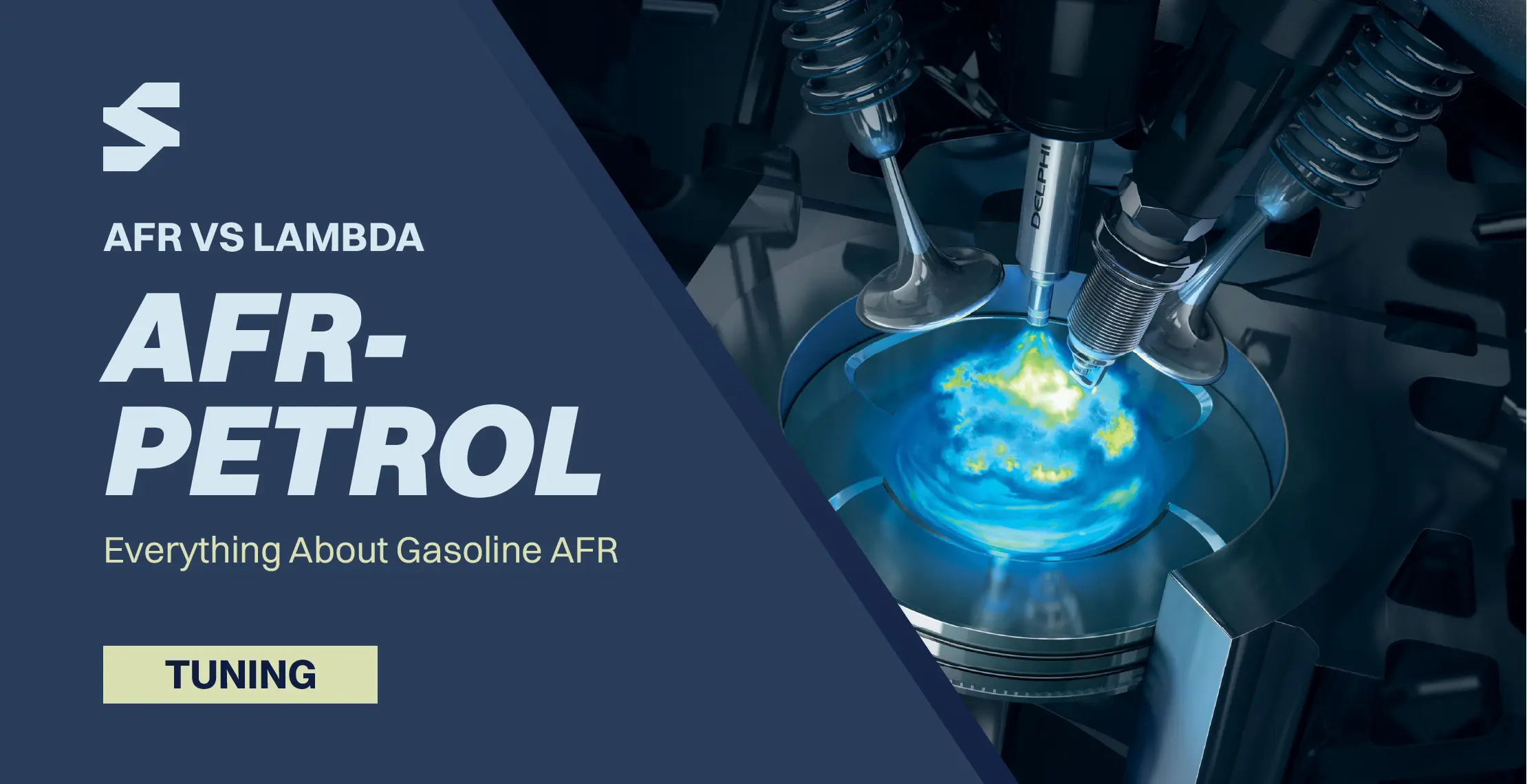
Engine Knock and Preventing It Using ECU Remapping
Engine knock, often referred to as detonation, pre-ignition, spark knock or pinging is a critical issue that affects the performance and longevity of internal combustion engines. This phenomenon occurs duo to many reasons, one of them being the low octane fuel which makes the air-fuel mixture within the engine's cylinders to combust prematurely, leading to abnormal pressure waves and audible knocking sounds. Over time, knocking can cause extensive damage to the engine components. However, advancements in vehicle technology, particularly in ECU remapping, provide a sophisticated method for mitigating and preventing engine knock which will be discussed later on in this article.
What is Knock and the Causes of It?
In a normal combustion, the piston travels upwards compressing a certain amount of air and fuel mixture, at a certain time before the piston reaches the TDC (Top Dead Center) the sparkplug fires and combustion happens evenly from the sparkplug until most or all of the air and fuel mixture is burned off. Knock occurs when the piston goes upward and sparkplug fires, but the pressure inside the cylinder exerts and at some point the mixture ignites outside the boundary layer of combustion. This act causes a sound just like a metal plinking against metal, which has a damaging effect in long term and causes Power Loss, Decreased Reliability, Engine Damage and Over Heating.
So you may ask yourself why would something like that happen? And here’s why:
1.Low-Quality Fuel: Manufacturers calibrate their cars with a specific octane rating, some fuels have lower octane ratings which make them less resistant to high temperatures. Modern cars are mostly lean burn, and having a lean AFR makes the temperature higher which can cause knock when the fuel octane is low.
2. Excessive Compression Ratios: Most modern day cars have High-compression ratios, commonly found in performance vehicles engines duo to direct injection and precise valve timing which allows optimal combustion with higher compression ratios.
3.Thermal Overload: Elevated temperatures within the combustion chamber can ignite the air-fuel mixture prematurely.
4.Carbon Deposits: Residual carbon deposits from incomplete combustion reduce the cylinder volume, increasing compression pressure and the likelihood of detonation.
5.Bad Knock Sensor: A faulty knock sensor fails to detect knocks and sends the wrong signals to the ECU, which makes the ignition timing corrupted and lowers the power of the engine and causes knock.
6.Improper ECU Calibration: For the engine to give you the most power and torque it needs the right amount of air and fuel ratio and optimal ignition timing. The values of these two components are controlled by some tables inside the ECU software, which is tuned by the manufacturer under Euro Emission Standards. One of the biggest challenges for an ECU Tuner is to get the most out of a car by tweaking the Ignition and AFR Lambda Tables inside the ECU software. If the Ignition Tables are advanced too much or the lambda tables are set too lean you may experience knock.
These factors underscore the importance of precision in managing combustion dynamics to prevent knock.
The Role of ECU Remapping in Engine Optimization
Back in the old days of cars, there was a carburetor for tuning the air/fuel mixture by just a screw and an ignition coil which you could advance/retard your ignition. So if these two key elements were tuned correctly you would get the best performance, fuel economy and no knocks. In the modern age of cars the whole system was changed to fuel injected, in which the Engine Control Unit (ECU) acts as the brain, regulating critical parameters such as ignition timing, fuel injection, and air-fuel mixture ratios. These key parameters are all controlled by tables in the ECU Software. So how can we get to most power and no knock?
How ECU Remapping Prevents Engine Knock
The most power a car can reach is just below the knocking threshold because after that knock sensor retards the ignition timing and you experience power loss. To reach that we need a deep understanding about AFR and Ignition timing.
Inside all the ECUs of Internal combustion engines there are Lambda or Fuel Injection tables and Ignition Timing tables. These are the two key things to calibrate an engine and to prevent knock, just like in the old days but this time we have more control.
This is an example of a Lambda Table from a Bosch ECU in the WinOLS software.
The table above is a Lamba table from a stock car with Euro 5 emission standards.
For a normal and low emission combustion to happen,1 gram of fuel and 14.7 grams of air is required. This 14.7:1 AFR is repeated in the table above which means that most of the time the engine is functioning with this AFR. As you can see in higher RPMs and Air Charges these numbers are lowered that’s because the lower the AFR the richer the fuel. In higher RPMs and Air Charges the fuel is set rich to cool and protect the engine and the catalyst by spraying more fuel into the cylinder.
14.7:1 is somewhat of a lean AFR, so why would the manufacturer set most of the Lambda table to this AFR? That’s all because of the emission standards. Most of today’s cars are lean burn, that means they’re mostly operating with a 14.7:1 AFR or even leaner! That’s when knocking is seen the most, when the fuel has low octane and has low resistance to high temperatures we will definitely experience knock. In modern turbocharger cars to achieve more torque in lower RPMs the fuel is set to lean and the turbo boost is high this makes the engine very sensitive to low octane fuel. As said before one of the reasons an engine knocks its cause of the bad ECU calibration.
One of the solutions to the knocking problem is to make the fuel richer in the areas of knock. So an ECU tuner should detect the areas in the table where knock occurs and make the fuel richer. This can be done with a good amount of knowledge about ECU remapping and detecting knock just by hearing it or using advance knock detectors.
For example the best AFR and the safest for knock protection is 12:1 to 12.8:1 for naturally aspirated engines.
Another way to prevent knock is to retard the ignition timing by lowering the values of ignition timing tables in the areas where knock occurs.
In this example we have spark advance ignition table from a Bosch ECU and we heard knock around 1500 to 3000 RPM, what we’re going to do is to retard the ignition until there’s no knock.
Knocking in Performance Cars
Reaching the Maximum Brake Torque (MBT) is one of the most important challenges for a tuner in performance cars. In other words, it is the optimal timing for spark plug ignition to extract the highest efficiency from the air-fuel mixture during combustion. The MBT point is a critical parameter in car tuning because it represents the ideal balance between power output and fuel efficiency without causing engine knock or unnecessary stress on engine components. This MBT is exactly under the knocking threshold, if you reached a level where knock occurs you should lower ignition timing or make the fuel richer to reach the best point.
Performance cars are particularly susceptible to knocking due to their high-compression engines and advanced tuning. Having excessive ignition timing advance and lean fuel mixture makes them sensitive to low octane fuel. Using premium high octane fuel or water methanol injection is almost always necessary duo to their high turbo boost pressure and the use of systems like CVVT (Continuously Variable Valve Timing) that if not tuned right can cause extreme knocks in their functional areas.
Advantages of ECU Remapping for Engine Knock
ECU tuning offers several advantages for engine knock prevention:
Enhanced Performance: Optimized engine settings improve both power output and fuel efficiency.
Longevity of Engine Components: Preventing knock reduces wear and tear on critical components, extending engine lifespan.
Customization: The process allows for tailoring engine parameters to specific driving needs, such as performance driving or fuel economy.
Considerations and Risks
While tuning ECU remapping is highly effective, it is not without risks. Poorly executed remapping can result in increased emissions, decreased reliability, and potential engine damage. As said before the two key things are the AFR and Ignition timing so if these two things are mapped incorrectly you will not only lose power but damage the engine in the long run. Thus, it is imperative to engage skilled professionals with expertise in ECU remapping to avoid adverse outcomes. Damages that a bad ecu tuning can do are Excessive Boost Pressure, Overheating, Turbocharger Wear, Clutch and Transmission Stress, Fuel System Overload, Voided Warranty and most importantly Pre-ignition and Knocking.
The only way to ensure the best performance is to choose a reputable tuner. Always work with certified professionals who use quality software and thoroughly test their remaps.
Our technicians in Caracal Tech have over a decade of experience in this field and will guarantee the safety of remaps.
Conclusion
Engine knock is a pervasive issue that can jeopardize engine performance and durability. ECU remapping offers a sophisticated solution by optimizing ignition timing, fuel maps, boost pressure, and air-fuel ratios. By addressing the underlying causes of knock, this technique enhances engine reliability and efficiency. However, professional expertise and adherence to regulatory standards are essential for maximizing the benefits of ECU remapping while mitigating associated risks. As automotive technology evolves, ECU remapping remains a cornerstone of advanced engine optimization strategies.
Contact us: Contact us easily via WhatsApp at +45 55 22 92 98
Email: [email protected] We’re here to help!


